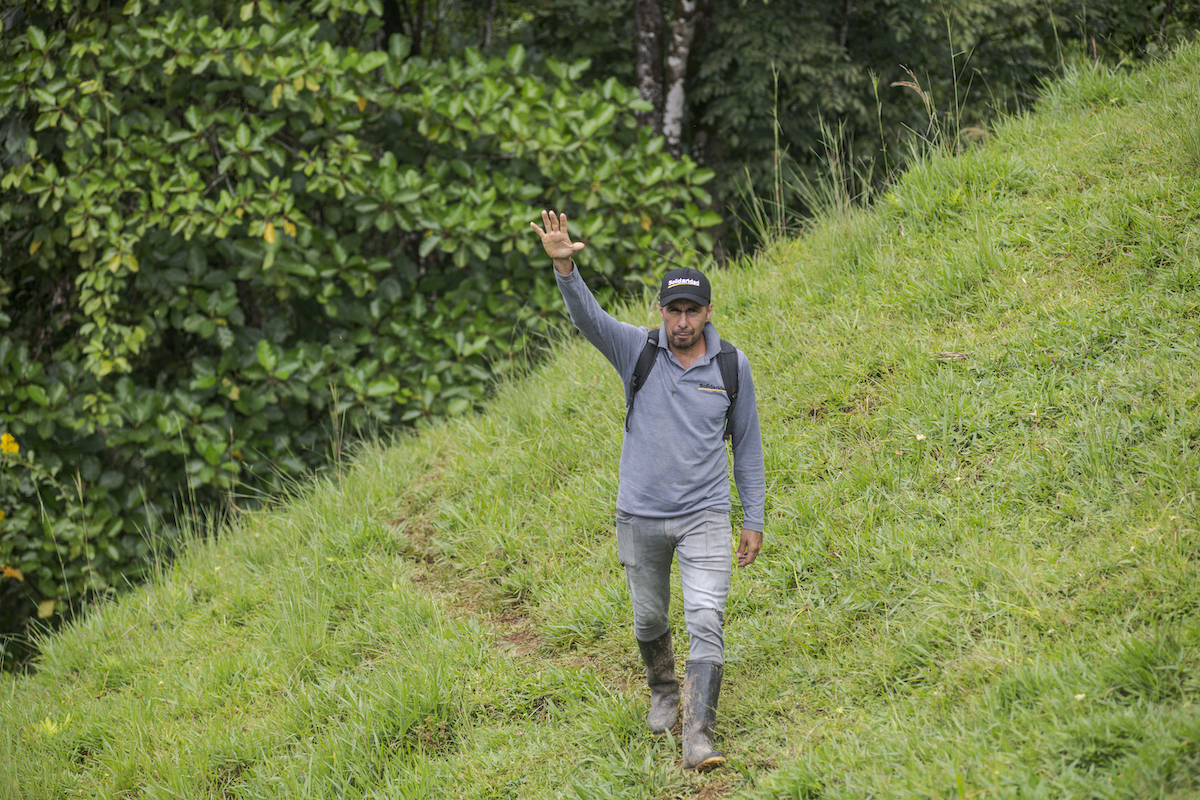Iván Francisco Mendoza, a field technician at Solidaridad Colombia, works to support coffee farmers in the Caquetá region of Colombia.
Since the start of Amazonia Connect in 2022, roughly 1,500 people in Colombia have received technical training on low-carbon agricultural practices, with women and young people making up a sizable proportion. These coffee farming families live in small-scale farming coffee communities in the department of Caquetá, a mountainous region of Colombia that is known as a gateway to the Amazon.
Deploying technical analysts to train local promoters who share low-carbon agriculture practices is one of the primary objectives of Amazonia Connect (which also operates in Brazil and Peru). In its first two years in Caquetá, Colombia, the programme has supported the planting of 40,000 new coffee plants and built awareness of the need to halt deforestation.
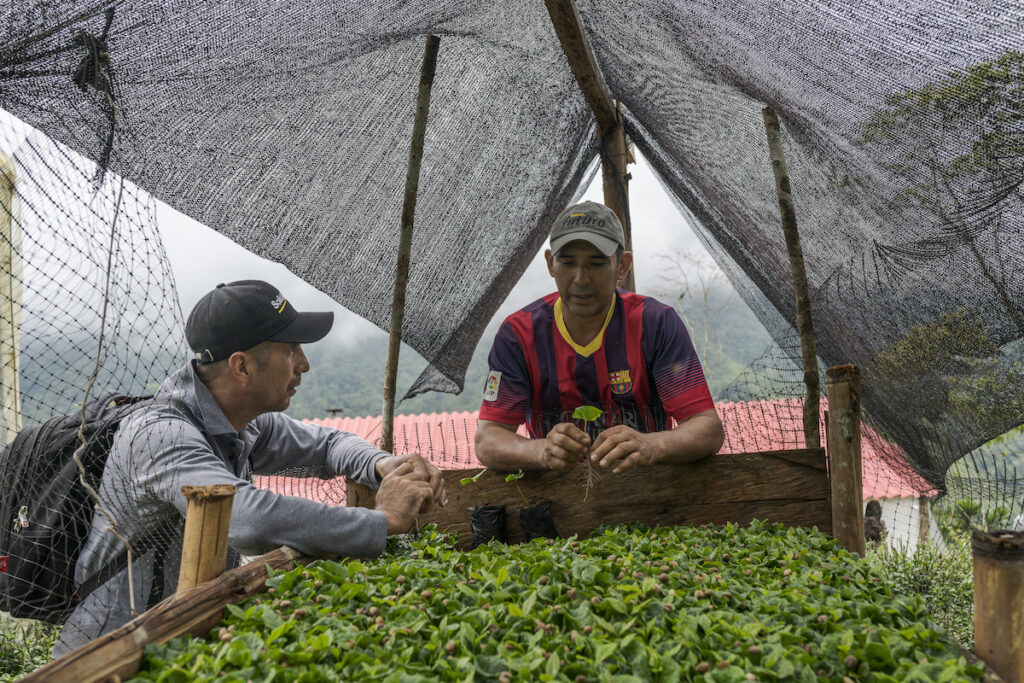
“We’ve shown people here that they don’t need to just be given everything. The promoters are our eyes, hands and ears within the communities”
Iván Francisco Mendoza, a field technician at Solidaridad Colombia
“We’ve shown people here that they don’t need to just be given everything. The promoters are our eyes, hands and ears within the communities,” says Iván Francisco Mendoza, a field technician at Solidaridad Colombia. “Unlike other projects, we train people from the communities so that the community can train itself.”
A new start powered by technical knowledge
When the programme launched in Caquetá, the first step was to work closely with community members to identify their needs, and build a better understanding of the region’s coffee growing areas with the best potential.
“Coffee farming in Caquetá is basically starting from scratch. We found 30 to 50 year old coffee plots that have never been maintained. Caquetá is not a recognized coffee origin, nor are its municipalities, but there is coffee,” said Mendoza.
“We have worked on soil management practices, conservation practices, fertilization and liming, which was a whole world unknown to people.”
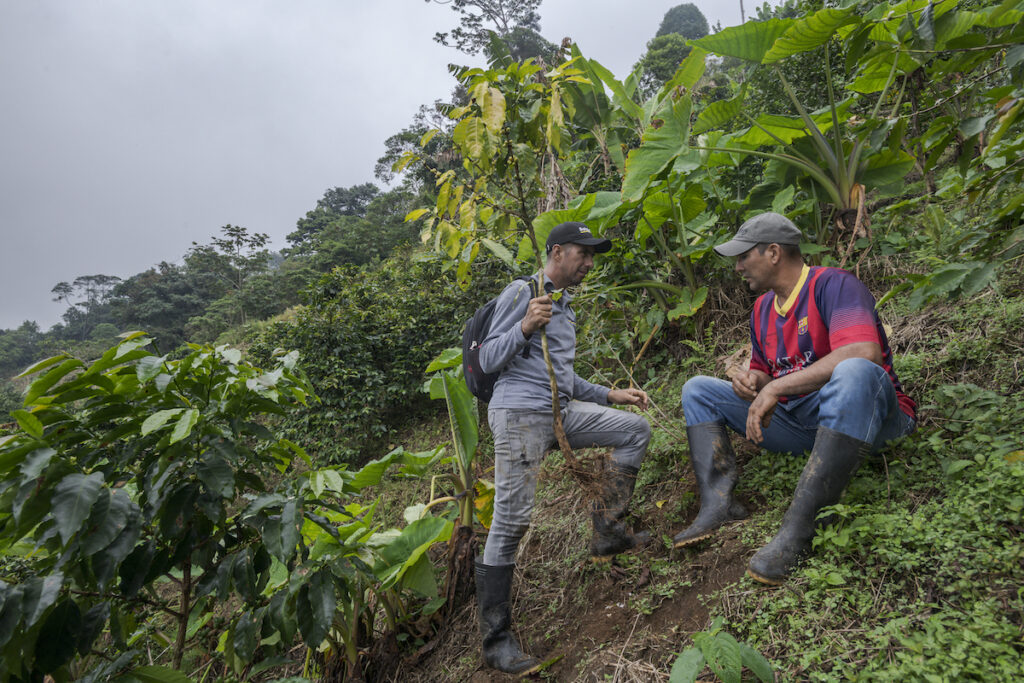
Since joining the project, Mendoza has spent the past two years traveling all over Caquetá. His workshops and advice have left their mark among coffee growers in Belén de los Andaquíes, Florencia, Montañita and San Vicente del Caguán.
The focus on technical assistance has been a trademark of Amazonia Connect in the region from the start.
“We, as Solidaridad, don’t deliver fertilizers, machinery, or equipment. We provide technical assistance,” explains Deibi Yuliana López, the coffee projects coordinator for Solidaridad.
“And in a region like Caquetá, where people are used to programmes arriving and handing over inputs. To achieve the level of credibility, not only among institutions, but with communities and organizations, it’s magnificent. The communities value it [technical assistance], because despite having so many projects in the region, it is rather scarce,” she adds.
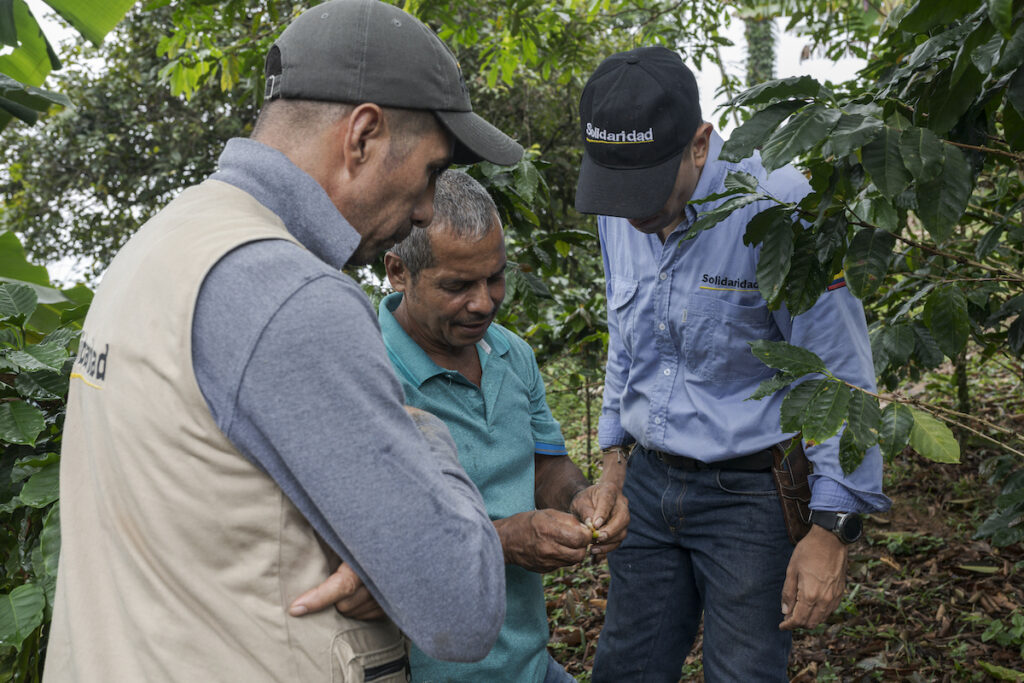
The promoters: Amazonía Connect multipliers
One way to create a durable legacy for the programme among the coffee producers has been through the use of ‘promoters.’ These lead farmers build relationships within their communities and serve as multipliers to extend technical knowledge. Currently, 32 lead farmers have joined to receive ongoing training, participate in workshops, and then pass on their newfound knowledge.
Despite the fact that 90 percent of these promoters have had limited educational opportunities, their commitment to learning and the training strategies have enabled the promoters to effectively share and expand the use of practices they have learned in the specific field of coffee. Meet some of the promoters here.
Fidel Hernández
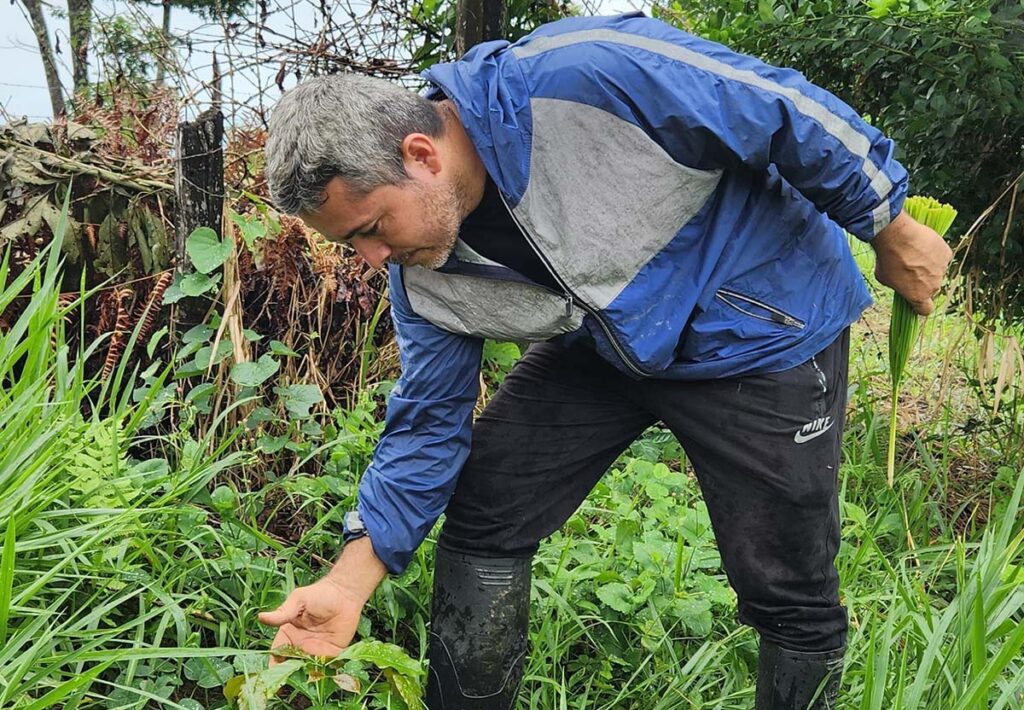
Daniel Cuellar
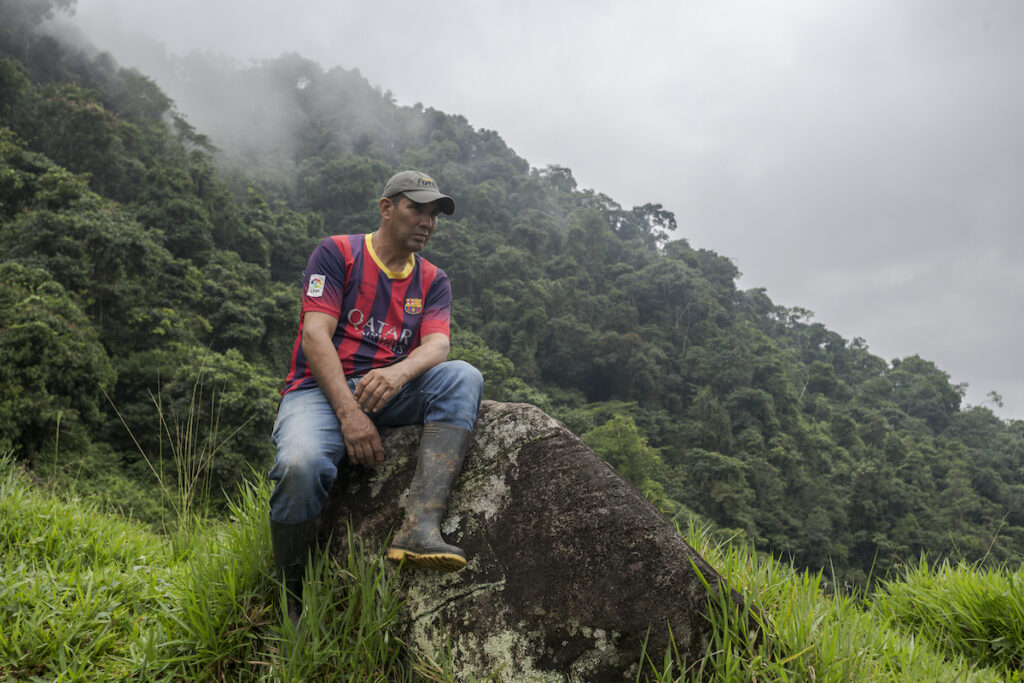
Now entering its third year, Amazonia Connect aims to connect with 1,100 more coffee-growing families throughout Caquetá. To achieve this, the programme will have to increase its base of promoters to 100. This growth will hinge on partnering with organized producer groups in the territory, like the Caquetá Coffee Growers Cooperative (COOCAFICA).
“We know that if we leave this knowledge within the producers and their families, the capacity will remain in the territory once the project ends.”
Deibi Yuliana López, the coffee projects coordinator for Solidaridad
Deibi Yuliana López has already witnessed the first impacts of the programme among the coffee farmers in Caquetá. She says, “We know that if we leave this knowledge within the producers and their families, the capacity will remain in the territory once the project ends.”
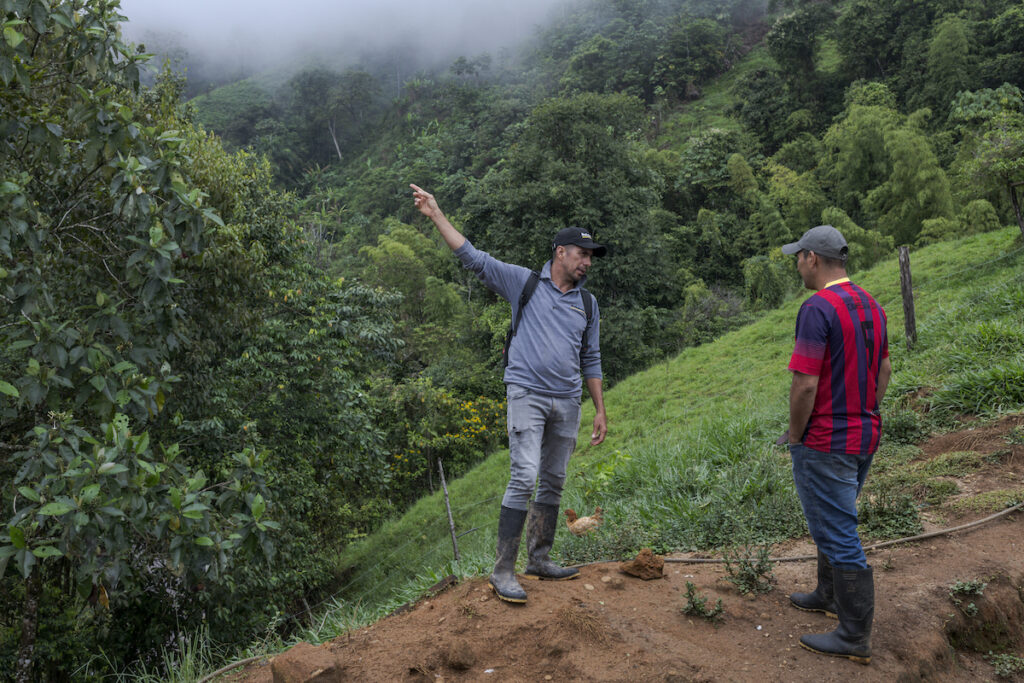
About Amazonia Connect
Amazonia Connect is a partnership between USAID, Solidaridad, the Earth Innovation Institute, the National Wildlife Federation, and the University of Wisconsin- Madison. Together with USAID’s Amazon Regional Environment Program, producers, companies, local governments and financial institutions. Amazonia Connect promotes and scales the adoption of low-emission commodity production to improve biodiversity conservation and climate resilience in Brazil, Colombia and Peru.

